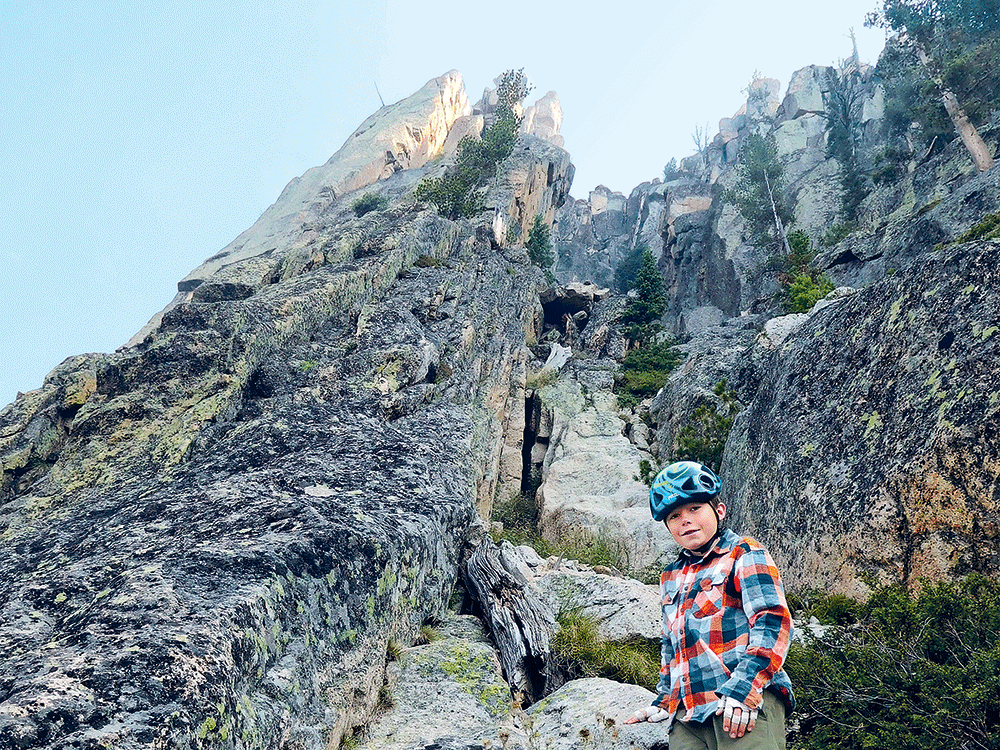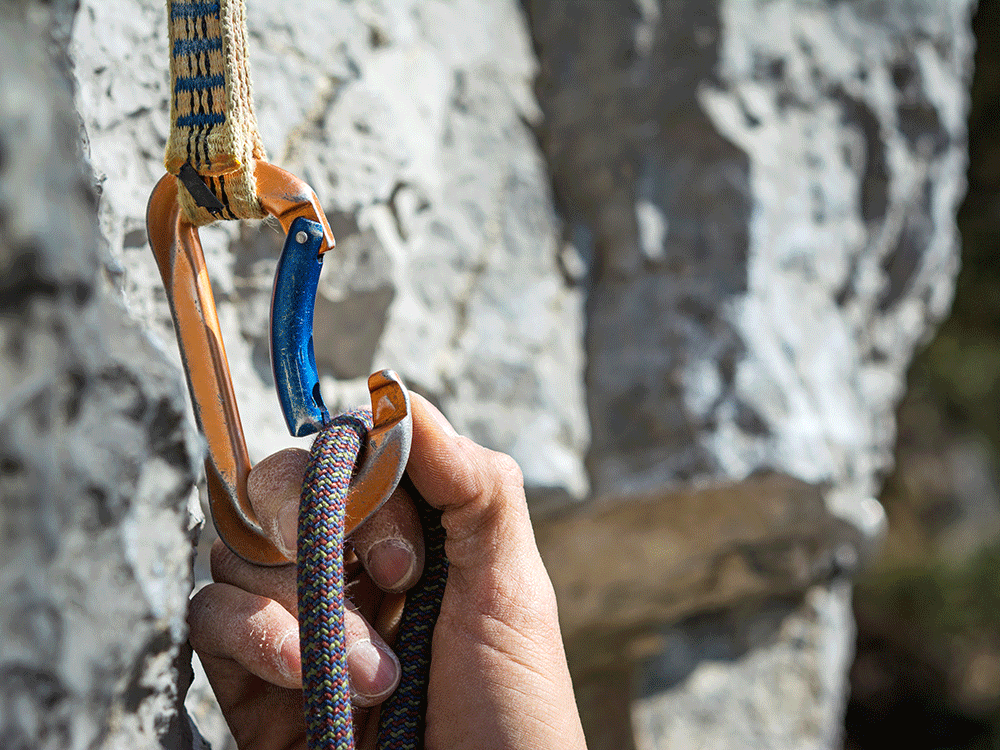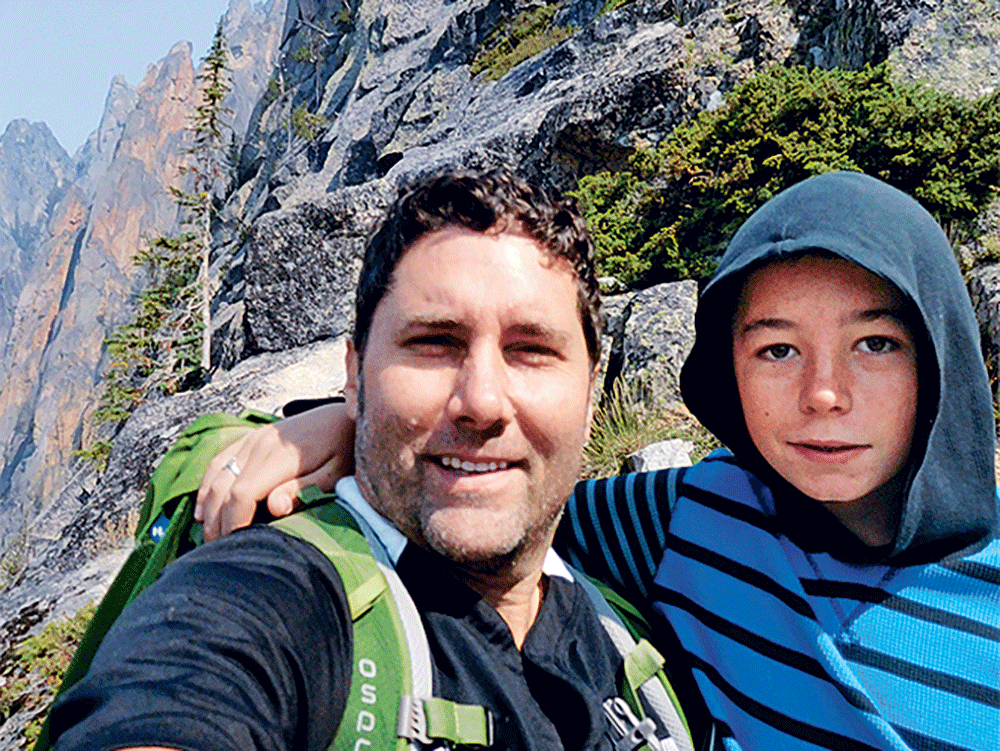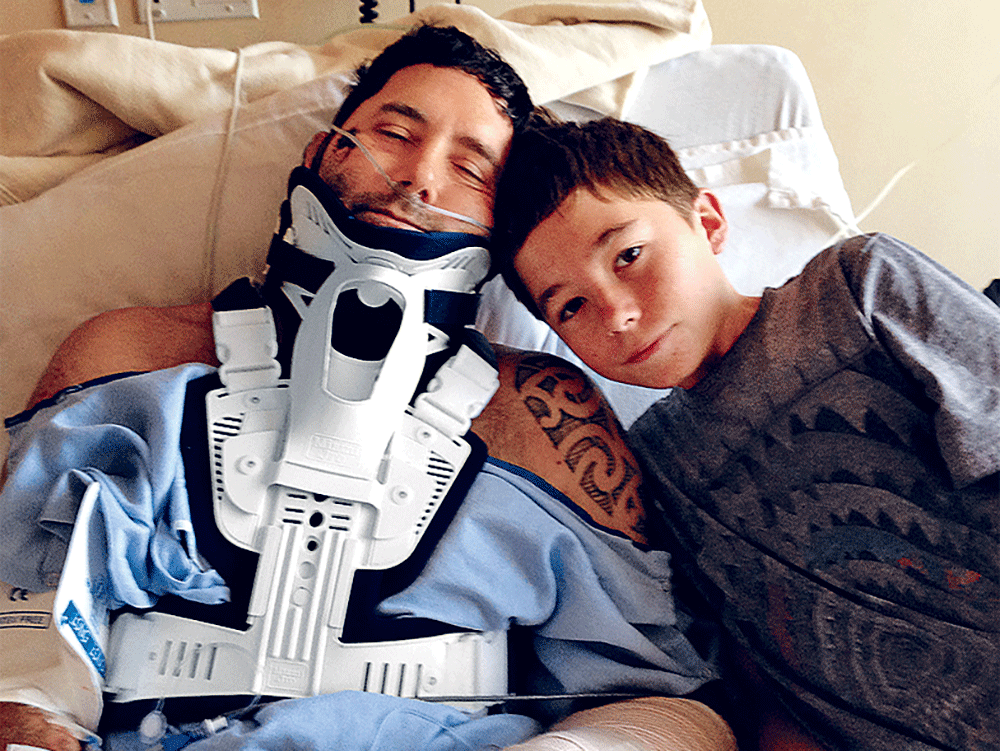
The Fall
The Frank Church-River of No Return Wilderness is the broadest sprawl of untamed landscape in the United States, covering nearly one million hectares of central Idaho. Among the area’s most spectacular attractions is the Bighorn Crags, a jagged range of 3,000-metre peaks set amid glittering alpine lakes. Near one of those pools, just after dawn on a cloudless summer day, 13-year-old Charlie Finlayson crouches inside his tent, getting ready for a long hike. He stows a water bottle and some snacks in his day pack, along with a sleeping bag, in case he has to set up a temporary camp.
He fills another bottle and the cooking pot to the brim with water for his father, David, and sets out a week’s supply of energy bars. Then he takes a GPS reading of the campsite.
He turns to his dad, who lies on a bloodstained bedroll, his forehead marked with a purple gash, his jaw clenched, his leg bandaged. “I’d better get moving,” Charlie tells him.
“Good luck, kiddo,” David says quietly. “Just take it slow and steady.”
Outside the tent, Charlie pauses and murmurs a prayer. “I’m not coming back without a helicopter,” he calls over his shoulder as he sets off.
At 52, David Finlayson had explored many wild spaces, bagging major summits in Alaska, Europe and South America. A respected defence attorney, he had split up with Charlie’s mom shortly after their son was born. The boy lived with his mother in Idaho, but spent most summers with his father. Although Charlie was as calm and contemplative as his dad was voluble and restless—David called him “the Zen master”—both were passionate about nature. When Charlie reached Grade 7, David introduced him to rock climbing.
By the time they set out for the Bighorn Crags in August 2015, Charlie was ready to take on complex climbs. They crammed their packs with supplies to last two weeks. After driving six hours from Boise, Idaho, they hiked for two days to reach Ship Island Lake, a jewel in the shadow of a gallery of pinnacles. Their first week, they did two long climbs.
Their third ascent began on a Monday morning. Around noon, David was inching his way across a granite spire 250 metres above the valley floor, searching for a line of fissures that would lead them to the top. Charlie stood on a ledge 10 metres to the right, lashed to a tree for safety as he fed rope to his dad. Reaching up, David dislodged a small stone. In the next moment, he heard a sharp snap from above as something larger broke loose. He barely had time to scream before everything went black.
When Charlie saw his father sailing through the air alongside the boulder that had struck him, he yanked on the rope. An instant later, an automatic braking device arrested the fall.
“Dad! Are you okay?” No answer.

The Injury
Charlie’s destination is the trailhead, 20 kilometres away. That’s where volunteers live in a cabin equipped with a two-way radio to call for help. The path rises gently at first, but it will reach an altitude of almost 3,000 metres before plunging into a valley and climbing again. It will branch off into poorly marked side trails, which can lead a traveller astray. As he walks, Charlie blows a whistle to ward off grizzlies and mountain lions.
David hung 12 metres below his son, each hidden from the other’s view. “Charlie, are you there?”
“I’m here! Are you hurt?”
Beneath David’s dented helmet, his head was throbbing from a concussion. His left arm and foot were shattered; the shin bone protruded through the skin, and blood was dripping onto the rocks below. A vertebra in his upper back was fractured. The pain came from so many places.
“What do I do? What do I do?” Charlie sounded frantic.
“Can you lower me approximately six metres? There’s a ledge there.”
Charlie let the rope play out slowly. When David reached the ledge, he yelled for his son to lower his climbing pack, which held a first-aid kit.
With his right hand, David slathered his leg wound with antibiotic cream, covered it with gauze compresses, and began wrapping it in athletic tape. He didn’t want Charlie to have to see the jutting bone. Once it was covered up, he called for the boy to rappel down. When Charlie arrived, they added more tape and tightened it. “Tell me it’s going to be okay,” Charlie pleaded.
“It’s going to be okay,” David told him, trying to believe it. “But we need to get off this mountain.” The plan: Charlie would lower David half a rope length at a time, then lower himself to the same level, set a new anchor and begin again.
The pulley system enabled the 40-kilogram child to bear the weight of an 85-kilogram man, but the process was agonizing. David was dizzy and nauseated, and whenever his left side touched the cliff, the pain was overwhelming. With each pitch, he had to hammer a piton one-handed into the rock, and Charlie had to untangle 45 metres of rope and thread it through the anchor. As the hours passed, David fought to remain conscious. “If I pass out,” he said, “hike back up the trail as fast as you can.”
“You won’t pass out,” Charlie assured his father, and himself. “We’re going to make it.”

The Mission
Charlie’s hike grows more gruelling as the trail climbs towards the pass. As his heart rate rises, so does his anxiety level. At around the five-kilometre mark, he thinks he hears voices. He gives a blast on the whistle and shouts, “Can you help me?” Someone yells back, “Sure!”
Sprinting up the switchbacks, Charlie encounters two men—Jon Craig and his 19-year-old son, Jonathan. Choking back tears, he describes his father’s plight and shows them the campsite marker on his GPS.
The Craigs debate whether to accompany the boy or find his father. “Please go to him,” Charlie says.
“There are three groups camping by Airplane Lake in the next valley,” Jon tells Charlie. “They can help you get where you need to be.”
Charlie takes the side route towards the lake. His heart sinks: none of the groups are there anymore.
It was nearly dusk when the excruciating rappelling and belaying finally delivered David and Charlie to the base of the cliff, and the temperature had dropped to 4 C. In his shorts and light Gore-Tex jacket, David was shaking with cold and exhaustion. “That’s enough for today,” he said. “You’ll have to go get our sleeping bags so we don’t freeze to death.”
Their gear was in their tent, almost two kilometres down a steep slope covered with scree and boulders. Charlie took off running. He grabbed the sleeping bags and stuffed a backpack with warm clothes and energy bars, and used his filter pump to fill bottles from the lake. By the time he found his way back through the boulder field, night had fallen.
David saw a pinpoint of light—his son’s headlamp—floating towards him. “Charlie!” he exclaimed, teeth chattering. After helping David into long pants and a down parka, Charlie zipped him into a sleeping bag. He propped the injured leg on a rock to slow the bleeding. He made sure his father ate some dinner. Then he crawled into his own bag.
Worried that David would die if he fell asleep, Charlie kept the conversation going. Eventually the boy allowed himself to catnap.
David, however, was in too much pain to drift off. He tried to distract himself by counting breaths. But breathing hurt, so he counted stars. There was a chance he’d survive, he thought. There was also a good chance he wouldn’t. And then what would happen to the kid?
He kept counting.

The Rescue
On the trail, Charlie hears more voices. He blows his whistle and calls out, and the voices answer. Following his ears, Charlie gropes his way through the pines to a different pond, less than a kilometre away. There, he stumbles upon a family of five and their good friend, Mike Burt, a former Marine who offers to run the 14 kilometres to the volunteers’ cabin to call in medical aid. Charlie follows him to make sure help is indeed coming.
When the sun rose on their camp, Charlie was relieved to see that his father was awake and alert. But the kilometre-wide cordon of boulders, many as big as cars, was a far less welcome sight.
After wrapping more tape around the bloody bandage on David’s leg, they started down the slope. The man dragged himself through the obstacle course centimetre by centimetre, leaving a trail of red. When he couldn’t manoeuvre between the rocks, he hauled himself over them, crawling up one side and sliding down the other. The boy ran ahead periodically, scouting for the least tortuous path, then trotted back to offer guidance. “Just another metre,” he coaxed. “Just a few centimetres.”
They reached their campsite around 4 p.m. David plunged his leg into the lake to clean it, and Charlie covered it with a new dressing.
Towards evening, Charlie cooked dinner on the propane stove, but his father was too nauseated to eat.
“Charlie,” David said, “you’ll have to go look for help in the morning.”
Picturing himself separated from his father, Charlie burst into tears. “What if I never see you again?”
“I’m sorry, kiddo,” David said. “We don’t have a choice.”
Sometime that evening, David awakes in traction. He is at Saint Alphonsus Hospital in Boise, where doctors immobilize his arm and leg and stabilize his spine with a brace. Over the coming months, he will undergo several surgeries and will be able to climb again. But on this night, through the morphine glow, he tries to remember his rescue.
He recalls the Craigs arriving at his campsite. A ranger (dispatched after Burt reached the volunteers’ cabin) showed up soon afterward. She kept David company until he was lifted by a cable into a helicopter.
The next day, Charlie arrives at David’s bedside. The Zen master had kept his promise. He brought back a helicopter. “People say, ‘You must be so proud of Charlie,’” says David. “They have no idea.”
Looking for more drama in real life? Read about this fiery rescue!